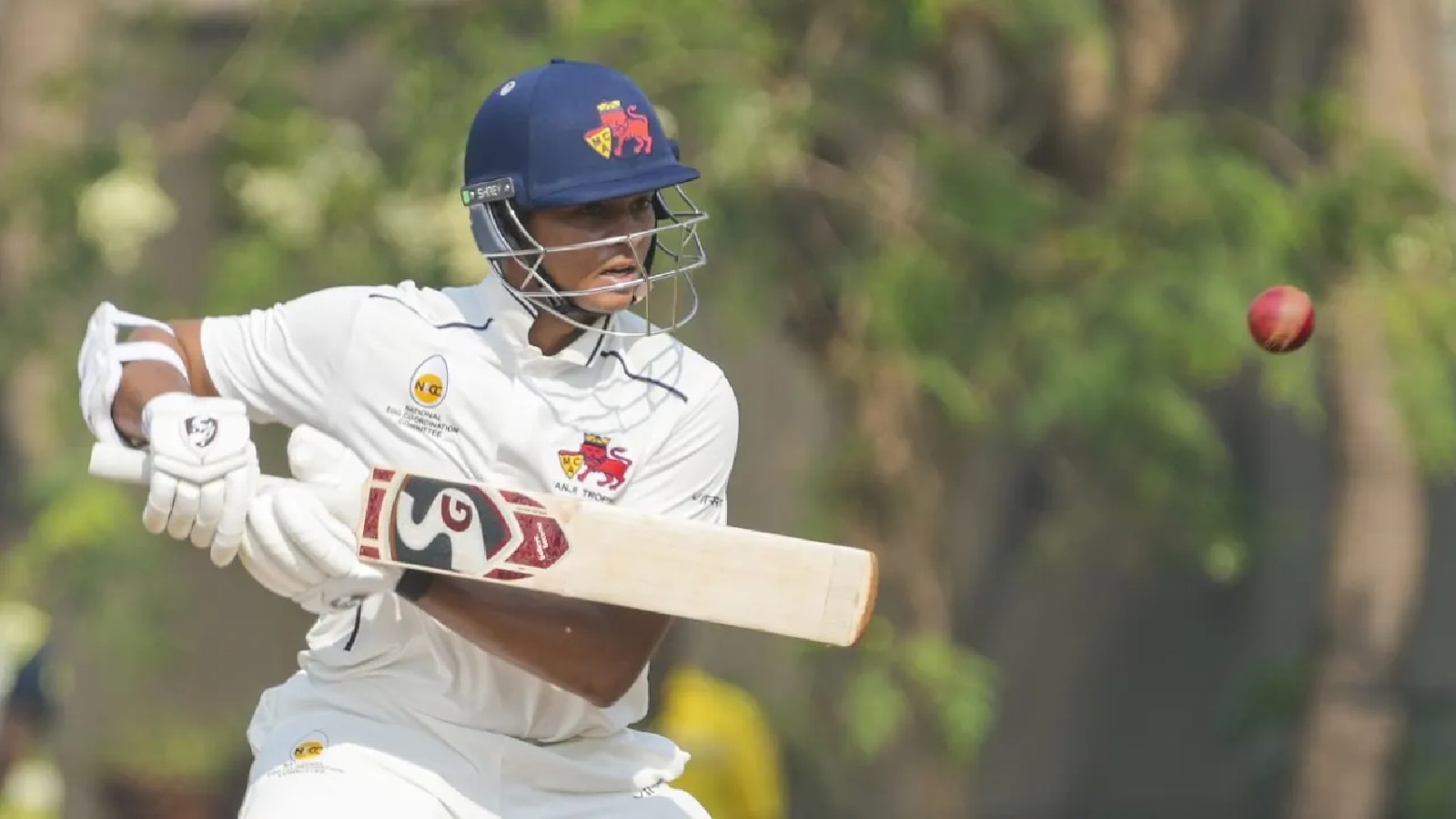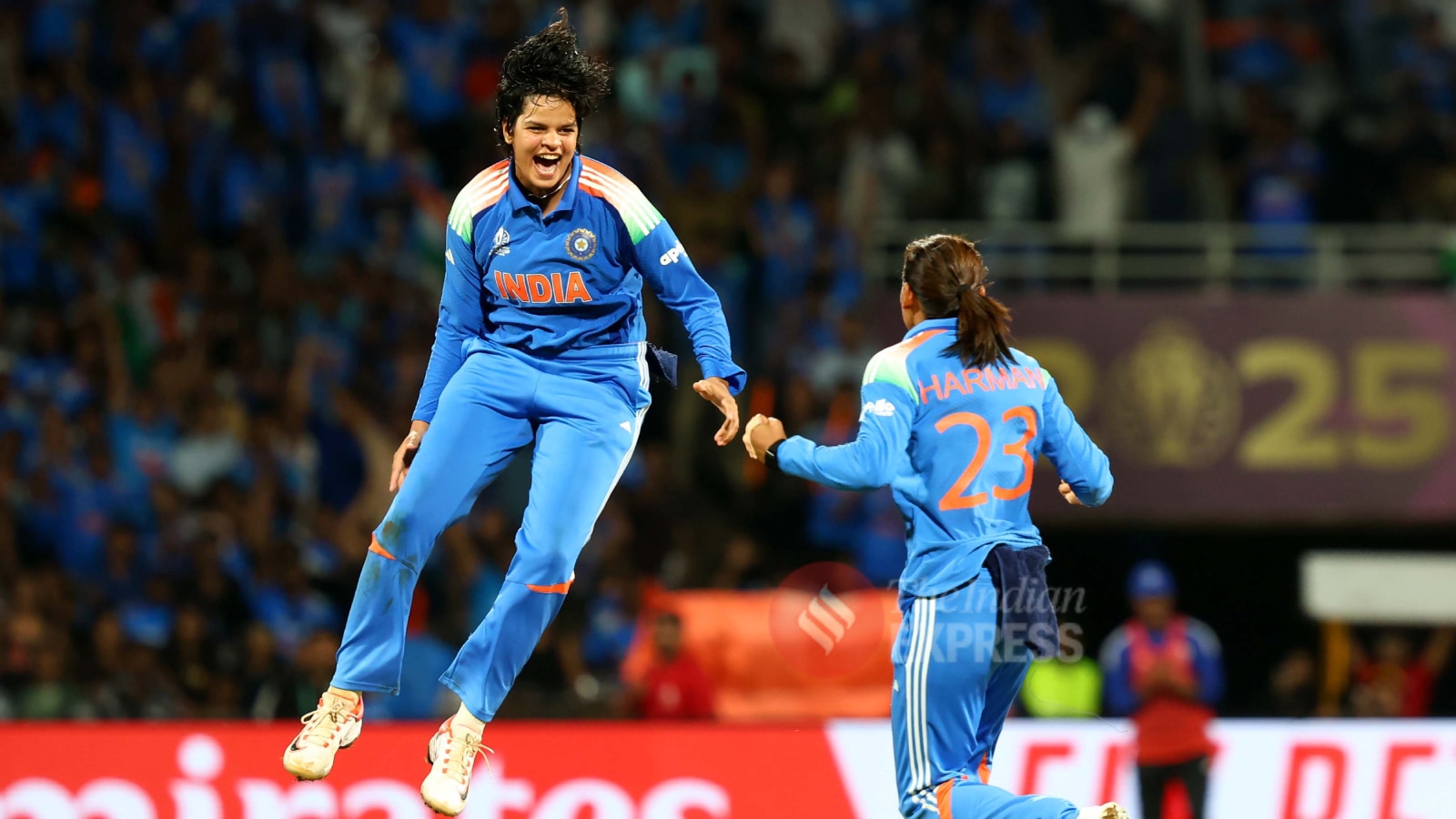ARTICLE AD BOX
It was a conversation from an upbeat time — when PV Sindhu had just been crowned World Champion, Smriti Mandhana was dealing with first effects of post-World No.1 batter pressure. And the brains of the show Double Trouble, the baby in that trio Jemimah Rodrigues, just 20, was bright-eyed and gleeful, mischievously being told by Smriti to bring her cricket doubts to her, but take the other pesky individual teen hassles to ‘second older sister’ Sindhu. The two were merrily bonding on how their hyper-active metabolism could take on the world, with just 5-6 hours of sleep, hanging up against ‘Smritu’ or Maadu (her two nicknames) who needed a good 10 hours to rejuvenate.
Like all girly talks, the three elite athletes went from frivolous to fiendishly serious topics, in a blink — people’s taunts, period pains, pressure of self-expectations, and even problems of misleading perceptions, that wreaked havoc with their otherwise happy dispositions. Like when Sindhu appeared for 5-6 MBA degree exams in supplementaries (October, not the usual March) and was actually asked, ‘Madam, did you really fail in all subjects?’ The recently crowned World champion, who had finally broken the silver streak, recalled getting defensive as this dropped on her quicker than a Tai Tzu Ying drop (though she had defeated the Taiwanese masterfully). Smriti, the Marathi maadu (marwari) girl speaking in chaste Bambaiya and, starting to accumulate runs, was still battling the judgemental perceptions that at times sting athletes who can’t complete education degrees because they are busy representing India.
“I’m in my 1st year of college for the last 3 years. Not that I fail!” the record beating batter would say sheepishly, needing to add, “I’m not a dumb person. But we don’t get time to give exams.”
Jemimah, a brilliant student and multi-talented in sport and music, was listening intently to both, saying, “Nobody understands what we go through.” This last week, her face far more gaunt and stressed, she was a far cry from that bubbly day of recording when her biggest worry was how to get to a million Insta followers like Smriti and Sindhu.
But even as life got brutally real on the Mumbaikar, she had come through a fire cauldron, walked over embers of coal, taking India into the cricket World Cup finals with a sterling century against Australia. The title still remains, and unbeknownst to all three, there was plenty in Sindhu’s own elucidation of her struggle that will resonate with what the two cricketers find themselves in now – the epic burden of expectations to win a title, India has twice lost before.
Jemi’s first question to Sindhu was how did she deal with people saying, “fill in- blank-with-anything-that-fills-troll-head cavities-now.” Smriti recalled that after the initial euphoria of 2017, their subsequent losses in semis and T20 finals had seen people saying, “winning is not for you all.”
Sindhu, who lost the World Championship finals in 2017 and 2018, would furiously nod, knowing exactly how it had felt. “Getting to Olympics final in 2016 is one thing. But in 2017 I had 7-8 silvers in a row. And people started saying I have final phobia. Or asking what’s happening to you? You always come to final and lose. Like you said Smriti, it’s not easy to come to a final or semifinals. People don’t see that.. when you lose, people are like, she lost in the final again! But coming to finals is big thing. Winning and losing is part of life.”
Story continues below this ad
‘Never thought about losing’
Those two silvers at Glasgow and Guangzhou shaped her resolve at Basel in 2019. “At the same time, I never thought about losing. Because I have lost like 5 tournaments in finals. But another tournament I used to not think about previous one. Because it was very important for me to get that particular game. For me, I just kept focussing on that particular thing and made sure I was confident that I can do it. So people keep criticising. People keep saying things. That really shouldn’t bother you guys. Really shouldn’t bother us,” she would continue.
Finals. Rinse. Repeat. Tell yourself – I can do it. I will do it. Just go back, learn from mistakes. Come back much stronger. Finals. Wham! Gold.
Like Sindhu, this wasn’t the classic underdog tale. They weren’t rank unknowns – favourites of the crowd. On the contrary, piles of expectations had set upon them like a burden. The redemption is never straightforward or smooth or scripted like fairytale. It can get daunting and desperate, and alternate between delirium and despondency – within a minute. “Most times, you think I’ll do my best. If I win it’s good for me, good for people. But there are times like the Basel World championship final. It was my fifth time, after two bronze, two silver. Aarghh, I was like I have to win this. I need to get this. I was so desperate I was like I don’t know what I’ll do. Seriously people were like everytime you come to final and are losing. Again final. Again final. I didn’t want people to say ‘silver Sindhu.’ And at some point it really gets into your mind,” Sindhu would say, looking more like Singham Sindhu (of ‘aata maazhi satakli’ fame).
“And you tell yourself. No come on. You can get much better. I came to finals and I said, ‘You know Sindhu, no matter what. I need to just give 100 percent and win this. I don’t know how it’ll happen. I just need it. And even though we say I’m fine, not tensed, I’m cool, you have that little pressure at back of your mind of what’s going to happen, how will I play. When I went onto the court, I was really quick on my feet. I decided to not think about anything. Just play my game.”
The rest was storied history.
Story continues below this ad
But there’s a reason sport is grander than movies. In its graceful unscriptedness lies authenticity. Sindhu recalled how she botched a rehearsed celebration, despite a 21-7, 21-7 scoreline over Nozomi Okuhata.
“I was leading 20-7 and I was like finally I’m winning this tournament. But it isn’t over yet. I need to get this point. But back of my mind I’m like, how do I shout, how do I (give the perfect end pose) …I decided I’m gonna shout very loud. And leave my racquet and just fall. But after winning the match I’m like ‘Shaant’ (quiet). ‘Ok I won it Yay.’ I was thinking I should shout but I was just like closing my eyes. And later I said, Sindhu what did you do? What were you thinking?!”
Dealing with failure
The Harmanpreet Kaur led Indian team had done well to bounce back from three losses and secure that outstanding win in semis. But dealing with those failings also needs careful handling. The plateaus needed as much managing as scaling of the peaks. Sindhu would say she grew up by accepting there would be ups and downs. “At some point, you start losing first round. It doesn’t mean that you can’t start winning again and are slipping down,” she would tell the Double Trouble hosts.
Smriti, similarly at the top of her game like Sindhu and facing billion expectations, had in fact played out that Harry Potter scene where Harry sends in a patronus that guides him out of the Dementor’s snare. In the show she would tell a smiling Sindhu, “Especially when you are World No 1. You go out to bat and you start thinking I have to bat like ‘Smriti Mandhana’.. but you don’t get runs and you start putting stupid pressure on yourself. I told Jemi, I think I am going to now bat like just a batter. Not like a name. If I say every time I have to bat like Smriti Mandhana, it’s not there. It’s not going to happen every time. I have to accept it. And move forward. You get to No 1, people are talking about you. When you go out to bat, you put unnecessary pressure on yourself. It happens one or two times. Then you understand – Bro it’s not working. You get back to normal.”
Story continues below this ad
The patronus was shaped like a Munnabhai or Circuit, slipping into Bombay Hindi that would leave Sindhu in splits: “Don’t give yourself that much importance. That you are some important player,” Smriti would say. “Agar khudko kum importance diya na, that you are just a normal player….khudko jab aapan badhaava dete na saying I’m world no 1, I should bat like that, we are stupidly putting stupid pressure on ourselves.”
The Double Trouble show would end with the three wise women agreeing on Sindhu declaring that, “Mentally we women are stronger in this century” while talking on the challenge of playing during menstrual periods. It would riff off Smriti’s ideal scenario for Indian sport. “My perfect dream is where you sit with a TV remote, one channel has Sindhu playing, next one has our women’s cricket team, third channel has the women’s hockey team playing, and on the fourth channel, gymnast Dipa Karmakar is doing her stuff.”
A 20-year-old Jemimah’s favourite movies? “3 Idiots, Chak de India, Inside Out – my all-time favourite.” Now at 25, she’s where Sindhu was when she won her and India’s only world title. On Sunday Finals Day of November 2 though, all TV sets in India will tune in to watch Team India take on South Africa women in the final. PV Sindhu’s advice: Be quick on your feet.










 English (US) ·
English (US) ·